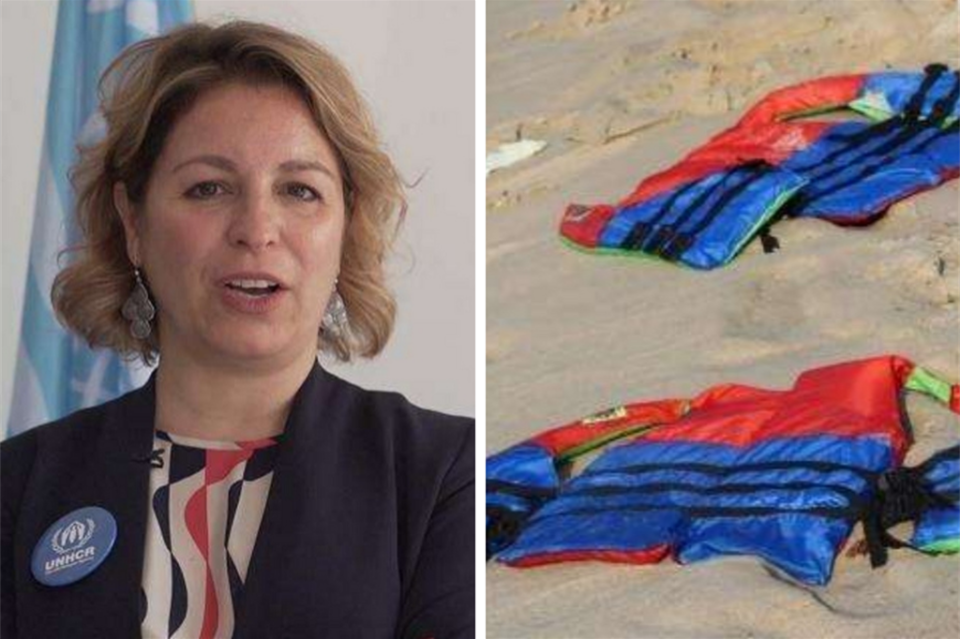unhcr. New shipwreck, at least 20 dead. «The tragedy of women in Libya»
Chiara Cardoletti, head of the UN agency for refugees in Italy, visited the island hotspot for two days. «Signs of torture even on minors. There are critical points"
of In the Excavation
Another massacre at sea, with at least 20 died off the Libyan coast. This was learned in the silence of the authorities thanks to the IOM complaint, the UN organization for migrants. "Beyond 500 migrants have been intercepted in the last few 24 hours and taken back to Libya where they are all imprisoned", reports Safa Msehli, spokesman of the Organization in Geneva, stating that "approx 20 people drowned". "The inadequate responses" to the situation in the Mediterranean "continue to have very serious consequences from a human point of view", the spokesperson reports. Subsequently, the Interior Ministry of Tripoli made it known through social networks that a patrol boat had "rescued" 147 people. Intercepted and immediately sent to prison camps. "Judicial measures have been taken against them," the Interior Ministry explained. But from Tripoli they are also keen to let it be known that the intervention was carried out despite "the plan drawn up for the holidays" on the occasion of the feast of the “sacrifice”. There are currently no humanitarian ships in the Strait of Sicily. Since the beginning of the year there have been more than 800 victims and beyond and almost 1.000 throughout the “Our sea”.
The scars, the rapes, the abortions, the disabled on the boats, the passing of the buck between EU countries. Chiara Cardoletti, representative for Italy and the Holy See of the UN High Commissioner for Refugees does not go around it: «Together with Unicef we made a two-day visit to Lampedusa. Unfortunately, we have found many confirmations of a situation that is not lacking in criticality".
Let's start with the people you've met.
Refugees and migrants arriving from Libya have a dramatic experience behind them. Many pregnant women disembark, higher percentage than in the past, and many of them ask to be able to interrupt their pregnancy.
They explained the reasons to you?
These are victims of sexual violence in detention centers in Libya. They face pregnancy with deep suffering. It's not easy for them to talk about it. Men too, especially very young kids, show on their bodies the evident signs of their passage in detention centres. We were able to verify the scars of lashes and other tortures. The number of unaccompanied minors and women victims of trafficking is also growing. Faced with these tragedies, the problem is not just how to deal with what is happening in Libya, but also how to respond to these critical issues once people have come to us. Unfortunately, it is precisely these needs that suffer from some shortcomings in the Lampedusa hotspot.
Which?
Overall we could see some improvements and certainly the hotspot today, which is located in an isolated area, is better managed than it fell even a year ago. But two critical issues remain: health care and attention to victims of trafficking. Thanks to the presence of "Doctors Without Borders" some gaps are mitigated, but the institutional health service is not yet sufficient and is not able to deal with the most difficult situations, for example by promptly deciding on land transfers, in suitable facilities, for victims of abuse and pregnant women. The answer in this sense is still to be improved.
Greece 43.390 dead people, not counting the missing, violations include crimes committed through air strikes 1990 till today, in the Mediterranean sea or in the other routes, by land, of immigration to Europe.
What should be done for victims of trafficking?
There is a lack of specific screening work. Since last year, the IOM is no longer present at the time of the landing. We hoped that a replacement service had been provided in the presence of operators from the UN Organization for Migration, who are able to identify and follow up on victims of trafficking. Unfortunately today this activity is not carried out. It's about people, mostly women and girls, who need specific assistance, which is not there today. And that can be a problem when they leave the hotspot, given that the network of traffickers is present in Europe.
You also found unaccompanied minors?
And, and we are facing growing numbers. Overall, the assistance to girls and boys is adequate. However, there are difficulties in placing them in dedicated centres.
The Tunisian route has grown in the last year. What did you observe?
There are many Tunisians, arriving via a specific route, different from the Libyan one but also in this case we are registering an increase in vulnerable people, especially migrants with severe disabilities. It is as if a certain number of places were allocated on each boat for people who hope to find better treatment in Europe: people with hearing problems, invalids, people with amputations and other severe disabilities.
What suggestions will you make to the Italian and European authorities?
We have long urged timely responses to save people at sea. We need concerted rescue operations at European Union level. But we will ask again for structured responses to address the needs we have gathered in the Lampedusa hotspot. Although the structure is now better managed, there are gaps especially for the whole medical part. Overall we ask the authorities to improve attention especially with regard to women who have suffered abuse, victims of torture and trafficking and unaccompanied minors.
